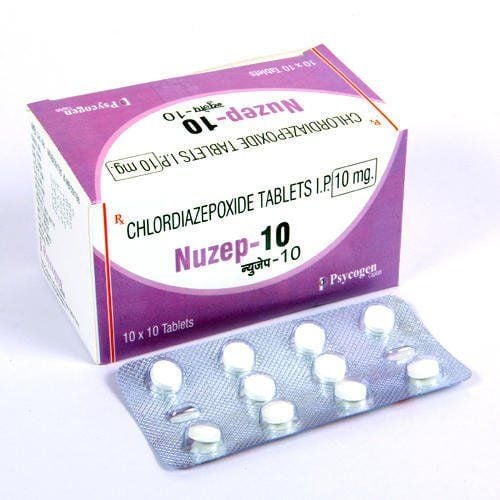This is an automatically translated article.
Many people with chronic insomnia decide to treat their insomnia with prescription or over-the-counter medications. However, insomnia drugs are not suitable for everyone, are not taken long-term, and can cause side effects and addiction. Therefore, it is necessary to use safe insomnia medication under the supervision of a doctor.
1. See a doctor first
When you have insomnia, the first step you should take is to visit a medical facility. Your doctor will ask about your sleep habits and may order tests to see if there are other health problems affecting your sleep. Your doctor can also advise you on good sleep habits or refer you to another doctor to treat the condition that is contributing to your insomnia.
Before using medication for insomnia, experts recommend starting with cognitive behavioral therapy for insomnia with fewer side effects or dependence. Specifically, it helps you spot the thoughts and behaviors that make your insomnia worse; and change with thoughts and behaviors that support good sleep . You will also be taught steps to practice better sleep habits, relaxation techniques, useful sleep control strategies in the future....
According to a sleep study, this therapy is effective. Insomnia treatment is on par with sleeping pills in the short term and superior in the long term. While this is an effective and safe treatment, it takes time and effort to see the benefits. If insomnia disrupts your daily life; or if you have trouble sleeping because you are going through a period of sadness or stress , your doctor may decide to treat your insomnia with medication .
2. Prescription sleep aids
When choosing an insomnia medicine for you, your doctor will consider your health, age, other medical conditions and other medications you are taking. You may have to try many different medications to find the right one for you.
Your doctor will discuss with you before writing a prescription, for example the price of each, whether it is covered by health insurance and if there are any restrictions.
Some prescription insomnia drugs include:
Benzodiazepines: This is an older drug that makes you sleepy by slowing down the central nervous system. Although prescriptions are sometimes still available, doctors often prefer newer medications because benzodiazepines have the potential to be addictive and make you quickly "gone" to them. Drug Z: This new drug works in a similar way to benzodiazepines, but the main difference is fewer side effects and less risk of addiction. However, the FDA warns that in rare cases, people who are treated for insomnia with this drug may sleepwalk or engage in "complicated sleep behaviors" while not fully awake. Orexin receptor antagonists: This new drug helps you fall asleep by reducing the amount of orexin the brain makes. Orexin is a brain chemical that keeps you awake. Antidepressants: One side effect of antidepressants is making you feel drowsy. However, experts usually do not recommend using the drug for this purpose. The FDA has only approved one antidepressant to treat insomnia, doxepin. Melatonin receptor agonist (ramelteon): This prescription drug mimics the action of the hormone melatonin. The body makes melatonin to help regulate the sleep-wake cycle. Drugs are not effective for difficulty maintaining sleep. See now: What are the current treatments for chronic insomnia? Is using Otiv good for patients with insomnia?

Cần sử dụng thuốc mất ngủ an toàn dưới sự giám sát của bác sĩ
3. Over-the-counter sleep aids
Like prescription drugs, over-the-counter sleep aids can also interact with other medications. Because medication will not be suitable for people with certain health conditions, you should always consult your doctor before using an over-the-counter insomnia medication.
Some popular OTC sleep aids include:
Antihistamines: Most OTC sleep aids have an antihistamine as the main ingredient. Histamine is a chemical produced by the nervous system that is responsible for maintaining alertness. These drugs will work against histamine and make you drowsy, but you are also very susceptible to developing a tolerance. Melatonin: This hormone is sold as a dietary supplement. Some studies show that the drug can slightly reduce the amount of time you have to toss and turn before bed, but there is no clear evidence of a beneficial effect on insomnia. With long-term use, the brain will think that melatonin is needed to fall asleep, leading to dependence on the drug and very difficult to sleep without the drug.
4. Side effects of sleeping aids
Whether over-the-counter or prescription, insomnia medications can come with unwanted side effects, including:
Feeling sleepy during the day Dizziness Headaches Diarrhea, nausea, or other symptoms. other digestive problems Memory and performance problems Sleepwalking, falling asleep while driving, while cooking or while eating (especially when taking “Z”) Allergic reactions.

Đau đầu là tác dụng phụ không mong muốn của thuốc hỗ trợ ngủ
5. How to use drugs to treat insomnia safely
Before you start treating insomnia with medication, you need to know how to safely use the following:
Tell your doctor if you are taking other medications or have health problems such as high blood pressure or high blood pressure. liver condition Tell your doctor if you are pregnant or planning to become pregnant Read the leaflet carefully. Take only exactly as prescribed by your doctor: Some prescription sleeping pills are for short-term use only. . Do not take a higher dose than prescribed. If the initial dose does not produce the desired effect, do not take more medicine without consulting your doctor first. Do not drink alcohol while taking the drug: Alcohol increases the sedative effect of the drug. Even small amounts of alcohol combined with sleeping pills can make you feel dizzy, confused, or faint. Combining alcohol with certain sleeping pills can lead to dangerously slow breathing or unconsciousness, and alcohol can actually cause insomnia. Don't take your medication before bedtime: Insomnia medications can make you less aware of what you're doing, increasing your risk of dangerous situations. Wait until you have completed all your tasks for the evening, then take your medicine and go to bed right away. Make sure there is free time to lie still in bed after you take your medication (4 - 8 hours depending on the medication) When trying a new medication, take your first dose in the evening that you can stay at home in the morning the next day. Don't take a new sleeping pill the night before an important appointment or activity, because you don't know in advance how it will affect you. Do not drive while taking medication for insomnia Tell your doctor or pharmacist if you experience any of these side effects Consult your doctor before you stop taking the medicine: When you are ready to stop taking it medication, follow your doctor's directions or directions on the label. Some medications must be stopped gradually. Also, be aware that you may experience insomnia for a few days after you stop taking the medication. It is important that you take your prescription sleeping pills at the same time each day. Arbitrarily skipping doses for 1-2 nights can make the brain confused, the drug will lose its desired effect.
6. Who should not take sleeping pills?
Prescription sleeping pills may not be safe if you are pregnant or breastfeeding. If this is the case, you should also ask your doctor before taking an OTC sleep aid.
Use caution if you have:
Kidney disease Low blood pressure Heart rhythm problems Seizures. Not all sleeping pills are safe for people with these conditions. However, your doctor can prescribe an appropriate sleep medication for you to use safely.
Elderly people should be especially careful, especially people over 75 years old. Sleep aids may affect them more than younger people. The drug will also stay in the body longer in the elderly, leading to memory disturbances and confusion, increasing the risk of accidents. Even OTC sleep aids can cause more severe side effects in older adults.
If you have a history of substance abuse, non-drug insomnia treatments (such as cognitive behavioral therapy) are safest. Sometimes your doctor will let you take medication for insomnia, such as an antidepressant or a melatonin receptor agonist.

Thuốc mất ngủ có thể giúp bạn ngủ được trong ngắn hạn
7. Medicines are not a long-term solution
Although treating insomnia with medication may help you sleep in the short term, it does not address the root cause. According to sleep experts, the most effective treatment for insomnia is to re-create and realign your perception of sleep, not to "medicate" yourself every night.
In some cases, taking medication for insomnia can make it worse. Insomnia drugs don't fix the problem, they just obscure the problem. Therefore, psychotherapy (applied alone or in combination with drugs) helps you find the root cause of insomnia. Additionally, sleeping on a regular schedule, exercising regularly, avoiding caffeinated beverages, and not taking long naps during the day, as well as managing stress, will also help.
The use of medication to treat insomnia may be necessary in some patients. However, to ensure safety, patients need to strictly follow the instructions of the doctor or pharmacist.
Follow Vinmec International General Hospital website to get more health, nutrition and beauty information to protect the health of yourself and your loved ones in your family.
Please dial HOTLINE for more information or register for an appointment HERE. Download MyVinmec app to make appointments faster and to manage your bookings easily.
References: webmd.com, mayoclinic.org













